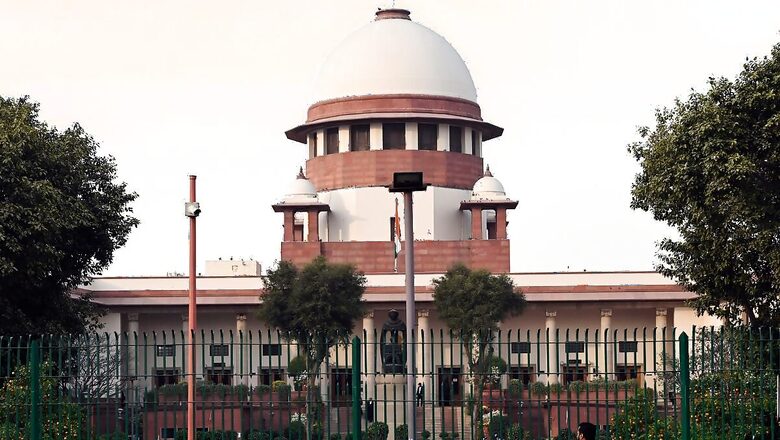
views
The Supreme Court has ruled that if a man files a suit for partition and separate possession, it is incumbent upon him to prove the fact of marriage of his mother particularly when it is denied by the alleged father.
A bench of Justices CT Ravikumar and Rajesh Bindal noted that the marriage of his mother with the alleged father was sought to be proved here as it were a child’s play.
The court dismissed a civil appeal filed by Ram alias Ramdas Sheshrao Neharkar against the Bombay High Court’s Aurangabad bench order of 2009 which had set aside a decree passed by the trial court and upheld by the appellate court.
The appellant had filed the suit for partition and separate possession of the suit property. It was claimed that his mother Padminibai had married respondent no 1 Sheshrao Baburao Neharkar and that he was born from that wedlock.
At the time of filing of the suit, the appellant was 35 years of age. Along with his alleged father, he also impleaded alleged father’s wife and his sons as defendants.
The trial court decreed the suit and directed for grant of 1/5th share to the appellant accepting his contention about marriage between the respondent no 1 and Padminibai and his birth from the wedlock.
The first appellate court upheld the judgment and decree of the trial court. However, upon a challenge made by the respondents, the High Court reversed the judgment and decree of the trial court and the first appellate court and dismissed the suit filed by the appellant.
Before the top court, his counsel contended the high court should not have entered into an arena of reappreciation of evidence led by parties while hearing the second appeal.
He claimed there were concurrent findings with regard to marriage and his birth out of wedlock.
After hearing the counsel for the appellant-plaintiff, the bench said, “In our opinion, no case is made out for interference in the present appeal.”
The court pointed out from the perusal of the High Court’s judgment, it was evident that the relevant facts to establish the factum of marriage of mother of appellant with respondent no 1 were not considered by the trial court as well as the first appellate court.
“There were large scale discrepancies in the evidence led. The marriage was sought to be established by the appellant-plaintiff only by leading oral evidence. The material witness namely Padminibai, the so called mother of the appellant-plaintiff, who had allegedly married the respondent no 1 was not produced in support of his case by the appellant/plaintiff,” the bench said.
The court also noted the suit was filed by the appellant-plaintiff nearly 16-17 years after he had attained majority.
“He never raised any claim against respondent no 1/defendant no 1, if according to him he was his father,” the court said.
It further pointed out the High Court has also noticed the fact that Padminibai, who is claimed to be the mother had re-married claiming that such a marriage was solemnised after she was abandoned by respondent no 1.
“From the pleadings and oral evidence it was sought to be established, as if the marriage was a child’s play. Firstly, the appellant/plaintiff has not been able to establish that there were any matrimonial relations between the respondent no 1/defendant no 1 and Padminibai. Secondly, even if there was any marriage, nothing is pleaded as to whether there was any divorce before she re-married,” the bench said.
The court also noted it has also come in record that the appellant-plaintiff had been residing in village Surdi, where Padminibai was living with her husband Rudrappa.
“In a suit filed for partition and separate possession claiming that the appellant-plaintiff was the son of respondent no 1/defendant no 1, born from his marriage with Padminibai, very heavy burden was on the appellant/plaintiff to prove this fact, when the factum of marriage was denied by the respondent no 1/defendant no 1, as he was married to Sheshbai (respondent no 4/defendant no 4),” the bench said.
From the evidence led by the appellant-plaintiff, the bench found, he had failed to discharge that burden.
The court, accordingly, dismissed the appeal, saying the High Court rightly reversed the findings recorded by the trial court and the first appellate court, being perverse.

















Comments
0 comment